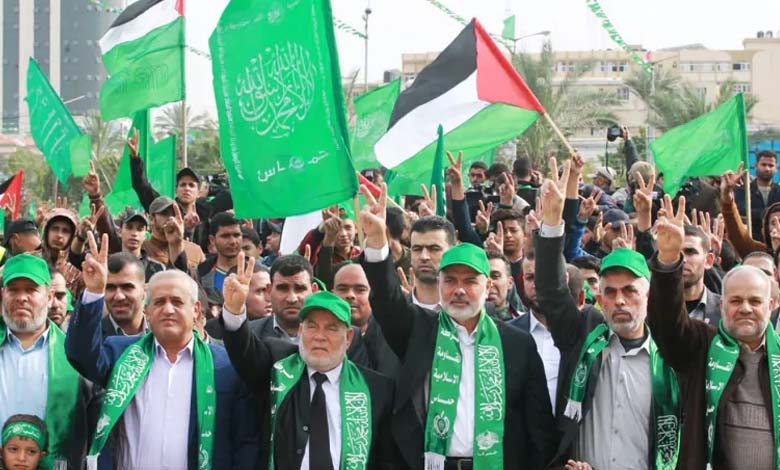How does the Muslim Brotherhood exploit the events in Gaza for its personal interests?
The Muslim Brotherhood exploits the events in Gaza for its personal interests

Amid the crises faced by the Muslim Brotherhood in recent years and societal rejection due to its involvement in various terrorist operations within Arab countries, following its fall from power in Egypt and other countries, the recent war in Gaza may provide the Brotherhood with an opportunity to try to improve its image and rid itself of accusations of violence and terrorism against Arab societies. Has the group already begun to exploit what is happening?
Exploiting the Scene
A recent study from the Strategic Research and Studies Center addressed the forms of interaction between Islamist and extremist organizations with the events of October 7th war, and how the Muslim Brotherhood sought to exploit the scene to its advantage. This involved organizational ties with the Hamas movement and the future prospects of these groups in light of the post-war situation.
According to the study, the war in the Gaza Strip marked a turning point in the historical and rhetorical trajectory of political Islamist groups. It will have long-term repercussions, as Hamas, the main executor of attacks against the Gaza Strip border on October 7th, is considered an intellectual and organizational extension of the Muslim Brotherhood. The war and its results will have a decisive impact on the behavior of the Brotherhood, which has already begun to surface in its branches in Arab countries. It is expected to have a more significant and far-reaching impact, as Hamas‘s attacks weakened the prevailing view of the Muslim Brotherhood as a group practicing pragmatic policies and avoiding major military gambles.
International Organization Exploitation
Dr. Ibrahim Rabi, a dissident leader of the Muslim Brotherhood and a researcher on terrorist group affairs, states that the international organization of the Brotherhood and most of its branches in Arab countries have adopted a supportive stance towards the attacks of Palestinian factions in the Gaza Strip. They support them during the ongoing war, and the reasons for this support and engagement are diverse, including considering Hamas as one of the group’s branches. Given the boost that Hamas provided to the Brotherhood after years of political failures and internal crises.
He added: In the long run, it is expected that the discourse of political Islamist groups will evolve towards more extreme and rigid directions, specifically in the discourse of the Muslim Brotherhood and groups closely associated with it. This extremism will be reflected in the attitudes of Arab and Islamic societies, regardless of the results of the war in Gaza, because the factors influencing the evolution of these trends are directly linked to the attacks on October 7th themselves, and then in the Israeli war that led to unprecedented humanitarian suffering for the people of the Strip, amid complicity from the international community, particularly the United States and European countries.












